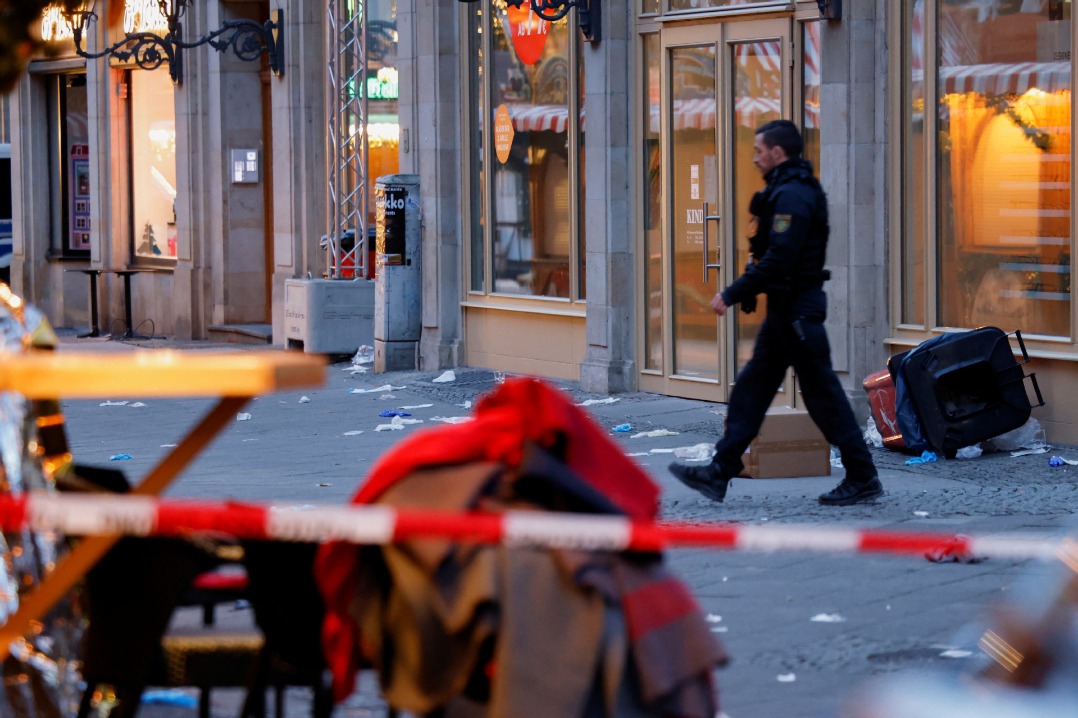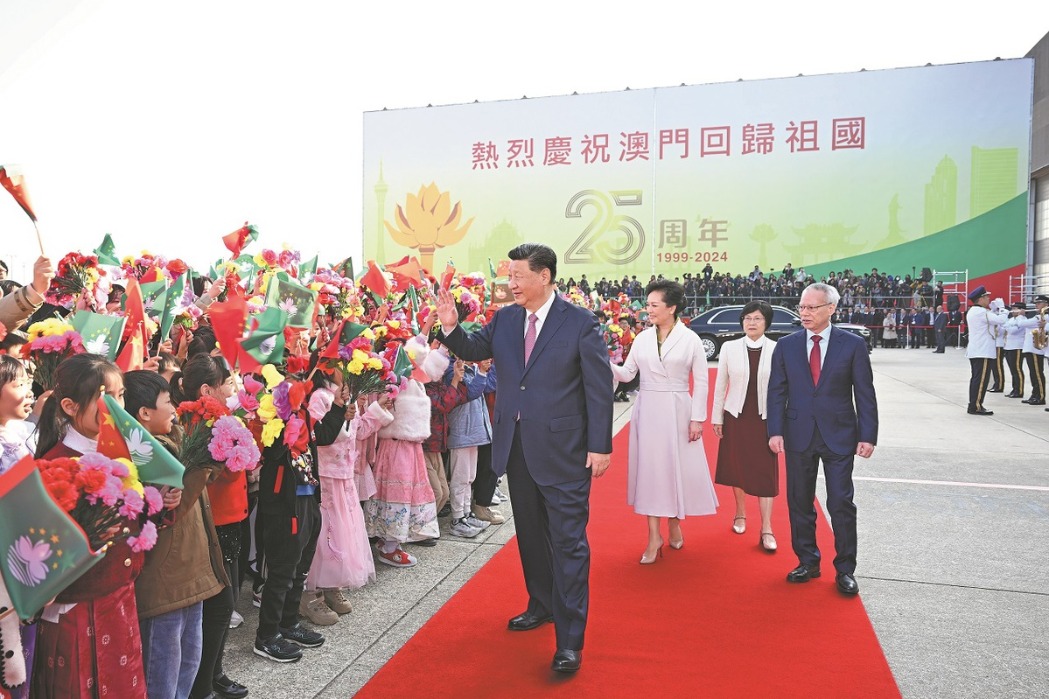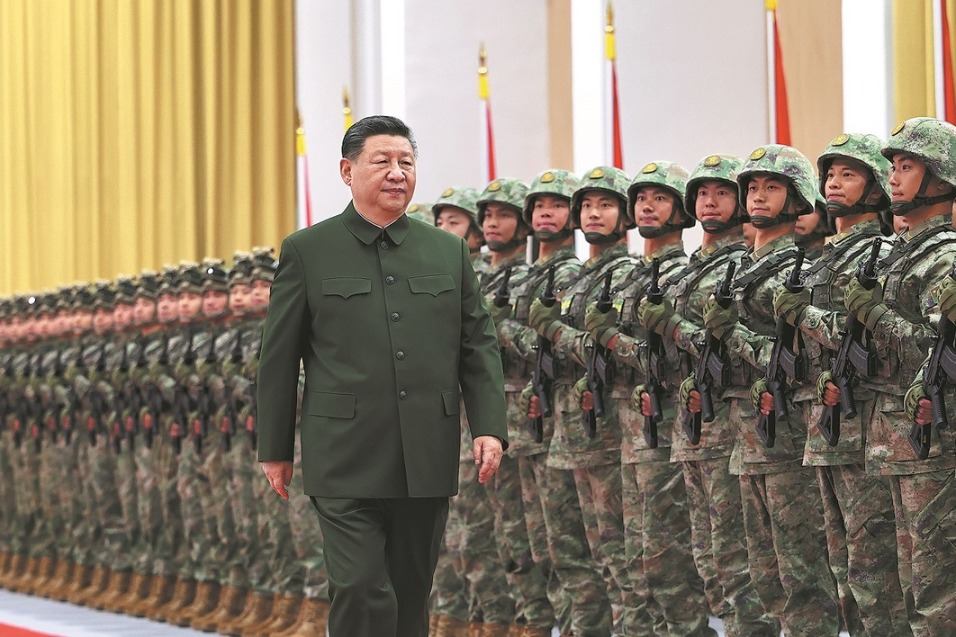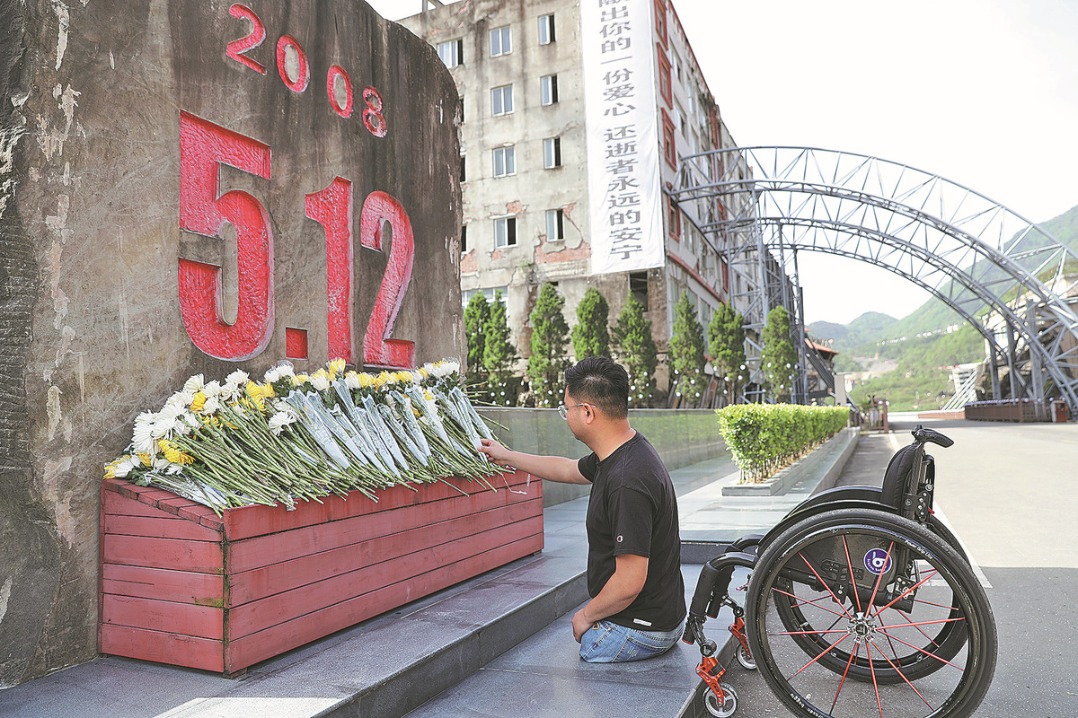Emotional dependence on wheels
By XU XIAOMIN/CAO CHEN | China Daily | Updated: 2017-04-03 06:58
 |
| Shi Ming shows a small fraction of his collection of miniature toy vehicles. [Photo/China Daily] |
Avid collector Shi Ming tells of his love for amassing thousands of toy models from iconic brands like Matchbox and Hot Wheels
Miniature die-cast Matchbox vehicles were one of the most iconic toys for those born between the 1960s and 1990s.
Made by British manufacturing company Lesney Products, more than 3 billion toy vehicles have been sold by Matchbox across 12,000 model lines since the company's inception in the late 1940s, according to The Telegraph.
While the primary target audience of such toys are children, the brand does have its fair share of adult collectors in China.
Shi Ming, 41, the operations director of DHL Aviation Services in Shanghai, is one such avid collector who has a whopping 3,000 Matchbox cars in his collection. He can even name every car model that is on display in his home.
"It was so fascinating when my mom gave me my first Matchbox car during my elementary school year in 1986. It was very cheap, only 1.6 yuan ($0.25), but it was nevertheless very unique at the time," said Shi.
Shi, who has been collecting Matchbox cars for 31 years, said that the toys were more than just a form of entertainment-they were also his first foreign language teachers.
For instance, he remembered how he would excitedly read all the product descriptions that came with each vehicle, and this helped to improve his grasp of the English language. When children were only beginning to learn English during the fifth grade, Shi was already familiar with words such as "caution", "firefighting" and "refuse truck".
Shi added that these toys also gave him insights into another world beyond China. In the 1980s, China was home to just a handful of car brands, but Matchbox taught him that others such as Jeep, Volkswagen, Audi, Skoda and Reynolds existed elsewhere in the world. He also recalled how he would get excited whenever he spotted familiar foreign car brands in imported movies.
A major milestone in the history of Lesney Products was when the company produced a miniature model of Queen Elizabeth II's coronation coach in 1953. A few months later, the company's co-owner Jack Odell designed an even smaller model that could fit in a matchbox for his daughter to take to school as a toy. This formed the foundation upon which Matchbox would build its success.
In the 1960s, Hot Wheels, a new line of vehicles by US toy giant Mattel, emerged to become Matchbox's fiercest competitor. To keep up with the competition posed by these new toy cars that had racing-style wheels, sleeker tires and brighter colors, Matchbox bolstered the quality of its toys and expanded the number of models.
In 1982, Matchbox was bought by American Universal Toys and gradually opened factories in Chinese cities such as Shanghai.
Shi said that Shanghai Universal Toys Company, which produced miniature car models from 1982 to 2004, was pivotal in igniting an interest in miniature toy vehicles in Shanghai, adding that he bought many Matchbox models from the brand's official store on Beijing West Road.
Matchbox was eventually bought by Mattel in 1997 and the combination of these two iconic toy companies resulted in several stylistic changes to the toy vehicles. Instead of obtaining authorization from automobile brands and designing scaled-down miniatures of the real cars, Shi said that Matchbox started to create "some weird models" after the takeover, the notable ones being a helicopter that looks like a dragonfly, trucks shaped like cows and jeeps equipped with oversized wheels.
Shi said that while children loved the new Matchbox models, adult fans like himself found them to be unsatisfactory.
In 2004, the same year it released a new batch of toys that Shi said were very impressive, Shanghai Universal Toys went bankrupt due to financial problems. He said that the new collection was what inspired him to continue his hobby of collecting cars.
He later developed a fondness for Hot Wheels cars as well and has since 2007 amassed more than 1,500 toys from the brand. Shi said that he spends around 5,000 yuan every year on new additions to the collection. Shi said that some collectors buy these toys as a means of investment, too. He noted how some people would buy two sets of a collection-one for playing and the other for investment.
"A model I bought several years ago cost me just 16 yuan. Today the same model could fetch up to 160 yuan," said Shi.
There are several others like Shi in Shanghai and they belong to a toy club that organizes activities every year. Shi said the club allows him to share his joy of collecting with like-minded individuals such as Chen Yunling, who is the founder of a website for Matchbox toys collectors to share news and memories. He also operates an online forum that facilitates research on various models.
In China, most Matchbox lovers are based in Shanghai and there are smaller fan groups in Beijing, Wuhan of Hubei province and Guangzhou of Guangdong province. Shi said that he knows of some Western counterparts who have even more impressive collections that span more than 60 years and comprise a more diverse range of models.
Shi said that his Matchbox collection allows him to calm the mind. He also lamented how his 10-year-old daughter is more interested in electronic games than his historic toys.
"Some electronic games, like crossword puzzles or car racing, may help to develop intelligence but the negative effects, such as the damage to the eyes and cervical vertebra, are more obvious. I'd rather she spend more of her leisure time on a toy collection or playing with Lego," said Shi.
When asked if he would ever consider giving up his hobby, Shi was quick to say no.
"These aren't just toys. They are a matter of emotional dependence."
Cao Chen contributed to this story.
























